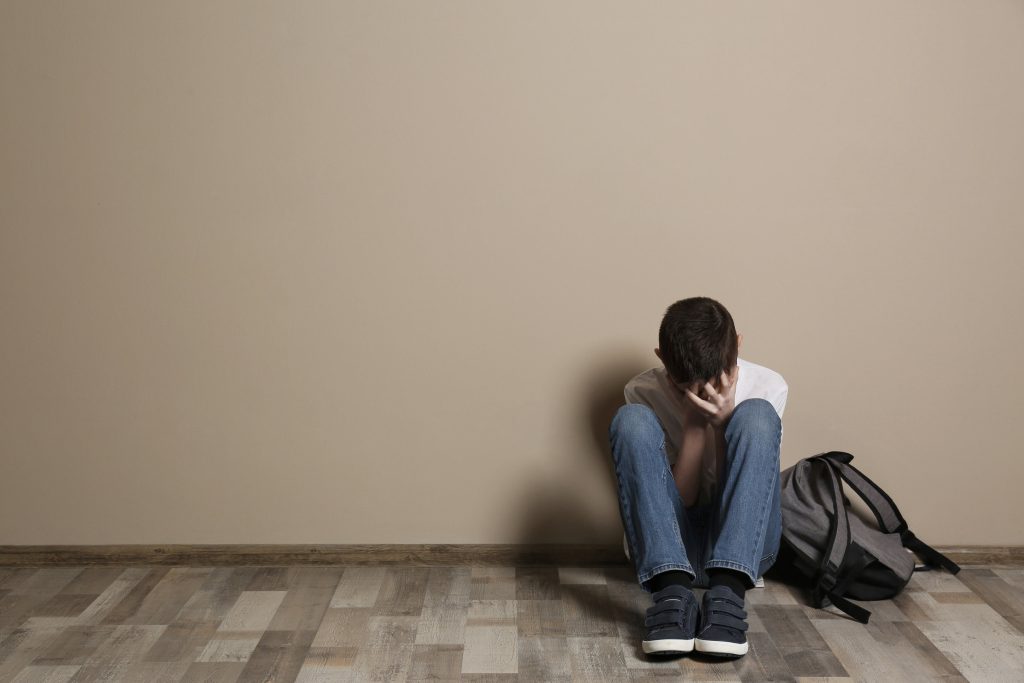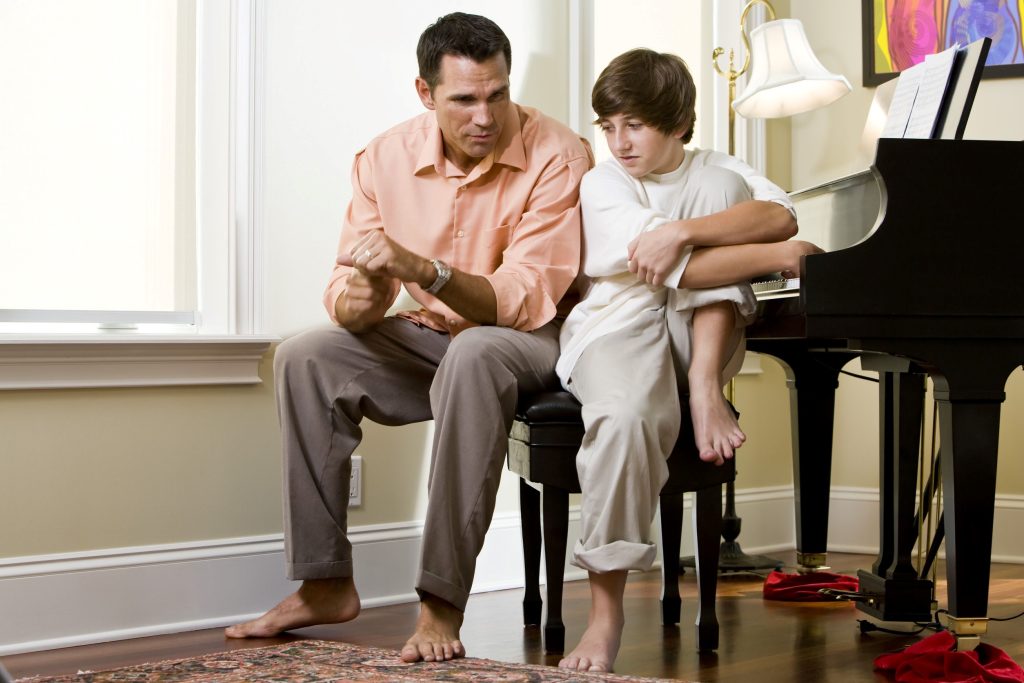Movies make for a nice source of entertainment, education, and even bonding opportunities. Certain movies do come with age restrictions, limiting their potential viewership.
R-rated content is generally only accessible to people above the age of seventeen, though minors can be permitted to watch if accompanied by an adult. Would it be wise to accompany your 14-year-old to watch an R-rated movie, or should you prevent them from doing that entirely?
What your 14-year-old is allowed to watch depends on much more than just age ratings. These classifications are determined by film raters who make use of different criteria for their decision, and what they deem as appropriate is liable to vary greatly.
The deciding factor should be how you think YOUR child would respond to exposure to these specific topics. Focus on the movie in question, rather than arbitrary rating guides, when making the decision.
Even if you decide against letting them see these movies, be sure to explain why you made that choice properly. There’s more to this than just movie privileges: you’re letting your teen know how you view their current state of emotional maturity. Think through your choice carefully.
How to Decide if Your 14-Year-Old Can Watch R-Rated Movies
Don’t Take Movie Ratings At Face Value

To start, the PG-13 rating wasn’t even established until 1984. Movies back then were either PG or R-rated, and you might be shocked at what PG films were allowed to get away with back then. In fact, you’re still going to be surprised at how much PG-13 films get away with now.
“The Dark Knight Trilogy” is PG-13, despite the serious topics, overt violence, and suspenseful sequences. The notorious “pencil trick” highlights just how much they pushed the envelope, to the point that the series cinematographer was shocked they’d kept their PG-13 rating.
“Taken” is also PG-13, with the plot-driven by the main character’s daughter being abducted to be sold into the sex trade. It involved not only multiple drug references and gratuitous violence, but even involved a very chilling torture sequence perpetrated against an antagonistic character.
Both of these examples are PG-13 and are definitely good ways to showcase how unreliable film ratings can be. These ratings tend to be more concerned with blood and viscera for their final rulings, with implied violence being allowed much more leeway.
In summary, ratings aren’t much of a generalizable metric. Think about what R-rated movie they want to watch, rather than pondering if they’re ready for all types of R-rated content. Make sure you know exactly what types of topics the film they want to see will cover.
Consider Their Prior Exposure

Most teenagers have experienced plenty of exposure to sensitive topics. Teens aren’t as naïve as most adults prefer to believe they are, and a lot of them swear casually and openly talk about taboo topics like drugs, sex, and violence. You can’t really curb that exposure without gutting their social life.
Instead, gauge how your teen might react to certain topics. Even if they experience conversations about most or all of these sensitive topics, how well they’d deal with them is liable to vary greatly. What kind of topics are likely to adversely affect your teen’s emotional well-being?
Thematic Concerns
For instance, if your teen has issues with depression, it may not be prudent to allow them to watch films like “Joker” (2019). This R-rated film highlights someone’s mental health on a downward spiral and might end up exacerbating your teen’s existing emotional duress.
Be mindful of the core themes of the movie your teen wants to watch. They could inadvertently end up upset or even triggered by certain types of film content, and you may not even be aware of this happening should they withhold details.
Scene-based Concerns
It’s not always the main thematic that could serve as an issue here. The film “It Chapter 2” is about a killer clown terrorizing the town of Derry, Maine, but it also featured a disturbing scene – an attack perpetuated against a gay couple by homophobes, shown in brutal detail on-screen.
The scene here wasn’t intended to be homophobic, and in fact, Stephen King – author of the novel the movie was based on – said this scene was inspired by a similar incident he’d witnessed in his hometown of Bangor, Maine. It was meant to draw attention to these atrocities, but the scene in the film remains quite explicit and potentially triggering for some.
If your teen is either queer or discovering their sexual identity, witnessing this type of scene is likely to adversely affect their emotional health and sense of security.
When deciding if your teen can watch an R-rated movie, be thorough in appraising said film first. Some scenes like this aren’t advertised in marketing, but you need to know exactly what your kid will witness during their viewing.
General Advice
Take your teen’s experiences into account when deciding if they should be allowed to watch the R-rated movie in question. Be mindful of any potential triggers the movie may flip for your child, shown through the main theme or via specific scenes in the film.
Make sure you know what the movie will cover. If you can’t be sure, take a few days and wait for reviews from other people. While your child may miss the initial premier, the delay is well worth it to ensure their emotional stability.
Seek Out Compromise Rather Than Ban Them Entirely

With the internet so readily at our fingertips, you’re unlikely to succeed in banning your teen from R-rated movies for more than a few days. Torrent files and streaming sites abound, and if your teen really wants to watch the movie they will, with or without your permission.
If they do it without your permission and find the content inside difficult to digest, though, it risks compromising their emotional health or otherwise disturbing their well-being.
As much as possible, work towards a compromise with your teen. Explain why you think them watching the movie isn’t the best idea – mention potentially triggering content or scenes. If they still push to watch it regardless, consider offering to watch the movie with them.
You won’t be stopping them, but you wouldn’t have stopped your teen for long anyway. At least this method allows you to monitor the well-being of your 14-year-old while they watch the R-rated movie.
As we discussed earlier, R-rated movie permission also indirectly shows how mature you think they are. If you can’t fully trust your teen’s current capabilities, at least grant them the opportunity to prove it – with your supervision, of course.
Here’s a small reminder: your teen has fourteen years of life experience, and at least a decade of values education from their upbringing. A two-hour movie is unlikely to “corrupt” that kind of moral foundation.
Your child will encounter other influences like this throughout their whole life, and it’s better to equip them to deal with such sensitive issues as they emerge rather than pretending they will never encounter them. It can be a little scary, but trust that your teen knows better.
Trust that they will learn better.
Final Thoughts
The R-rating on films can seem intimidating, and it can be hard to tell if your 14-year-old is ready for R-rated films. The age rating doesn’t matter nearly as much as the film itself, so treat permission to watch on a case-by-case basis.
Be sure to learn what’s awaiting your teen in that movie. Wait until more details come up, then exercise your best judgment when making the decision. If they insist on watching a film you’d rather they didn’t, offer to accompany them during the screening to monitor their well-being.

